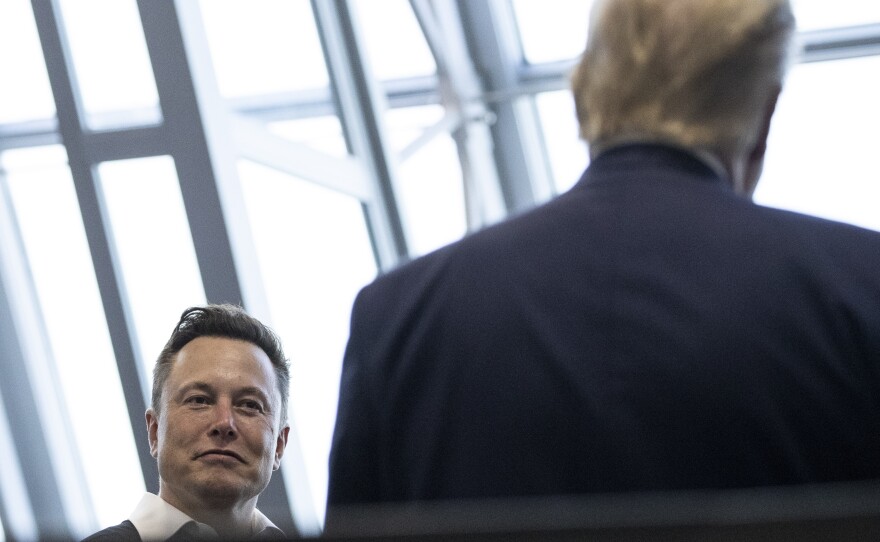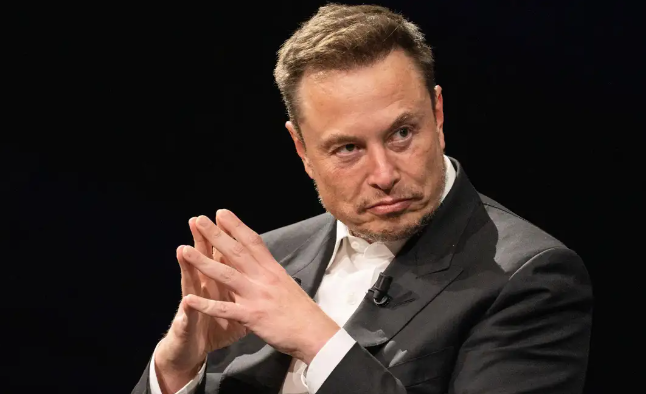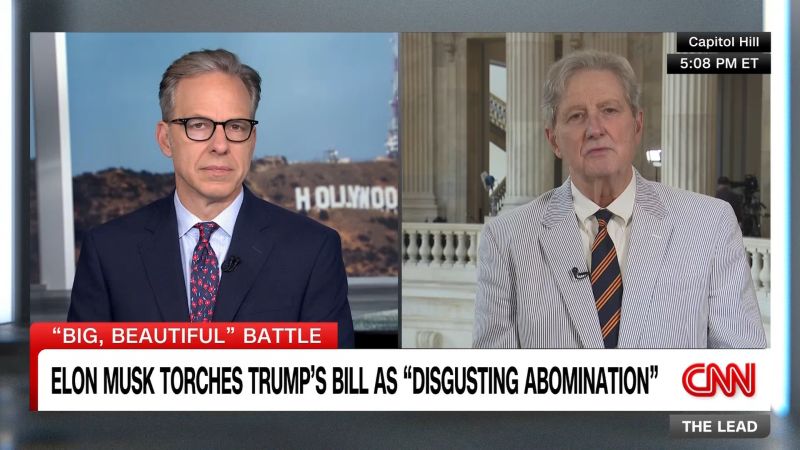Trump-Musk Feud Intensifies with Political and Business Implications

A dramatic and public feud has erupted between technology billionaire Elon Musk and US President Donald Trump, two figures once considered close allies. The schism, playing out largely on social media, has sent shockwaves through political and business circles, raising significant questions about the future of Musk’s vast empire, including Tesla and SpaceX, which are heavily reliant on government relations and contracts. The conflict escalated rapidly, characterized by harsh accusations and threats, leaving Tesla shareholders dismayed and analysts scrutinizing the potential for severe financial and regulatory fallout for Musk's companies.
The alliance between Musk and Trump had been notable. Musk had reportedly poured hundreds of millions of dollars into supporting Trump's re-election in 2024, formally endorsing him in July 2024. Following Trump's successful election, Musk was appointed to lead a new government agency, the Department of Government Efficiency (DOGE), in December 2024. He quickly became a key figure in Trump’s inner circle, attending Cabinet meetings and even accompanying the president on Air Force One. Musk publicly declared his affection for Trump, and under their joint leadership, DOGE initiated sweeping staff cuts across federal agencies. However, this seemingly strong relationship began to unravel, culminating in a messy public breakup.
The immediate catalyst for the feud was Musk's vehement criticism of President Trump's major tax and domestic policy bill. Musk, just days before concluding his role with the federal government, publicly blasted the bill, which Trump dubbed his “big, beautiful bill,” as a “disgusting abomination” in early June 2025. This unexpected criticism of a legislative package central to Trump's second-term agenda—which includes extensions of 2017 tax cuts, increased border security funding, and a rollback of clean energy tax credits—triggered a furious response from the President.
The dispute quickly escalated into a war of words across social media. Musk accused Trump of ingratitude, highlighted his financial support for Trump's campaign, and controversially claimed, “Without me, Trump would have lost the election.” He further stoked the flames by suggesting Trump's name appeared in the unreleased Jeffrey Epstein files. President Trump retaliated by claiming he had asked Musk to leave the administration and had upset Musk by planning to end tax credits for electric vehicles, a move he said Musk knew about for months. Trump also suggested Musk had “Trump derangement syndrome.” The public nature of the spat saw Tesla shares plummet, with short sellers reportedly pocketing around $4 billion in profits from the stock's significant drop.
The financial repercussions for Tesla were immediate and severe. The company's stock plunged 14% on one day, erasing approximately $152 billion from its market value and $34 billion from Musk’s personal net worth. Analysts warned that Musk’s actions risked alienating both Democratic customers (due to his initial support for Trump) and now Trump supporters (due to the feud). Furthermore, Tesla's ambitions for its Full Self-Driving technology, which requires government approval, appeared jeopardized. Neuralink, Musk's brain chip startup, also relies on FDA approval, adding another layer of vulnerability.
Musk’s other major venture, SpaceX, also faces significant risks. The company is a critical contractor for NASA, having received nearly $15 billion in investment, and operates the only American vehicle for crewed missions to the International Space Station (ISS). SpaceX is also integral to the Artemis Moon mission and is contracted to de-orbit the ISS in 2030. The Pentagon and US intelligence agencies have also poured billions into SpaceX. President Trump directly threatened to terminate Musk’s governmental subsidies and contracts, a move that, while potentially illegal according to some experts, could severely damage SpaceX and set back US space programs by a decade. Musk himself briefly threatened to shut down a SpaceX program NASA relies on before backtracking.
The scale of government support for Musk's enterprises is substantial. An investigation revealed Musk’s ventures have received at least $38 billion in government contracts, subsidies, loans, and tax credits. Tesla's survival was aided by a $465 million Department of Energy loan in 2010, and it has earned $11.4 billion in regulatory credits vital for its profitability. SpaceX has grown into America’s most vital space contractor primarily through government backing. This reliance contrasts sharply with Musk’s public criticism of government subsidies, a paradox noted by observers like Yale professor Jeffrey Sonnenfeld.
Experts have widely criticized Musk's handling of the situation. Dan Ives of Wedbush Securities called Musk's approach “a potentially very hazardous path,” emphasizing the danger of alienating both political sides for a consumer-facing CEO and noting, “You don’t want Trump on your bad side.” Bill George of Harvard Business School described it as a “brutal breakup,” advising that one should “never go to war with the president of the United States,” and that a CEO cannot effectively run a business while deeply involved in government. Beyond contract termination, analysts noted that the Trump administration could use regulatory agencies like the FAA and NHTSA to create bottlenecks, slowing or stalling key Musk projects like Starship launches and Tesla’s Autopilot development without needing Congressional approval.
In the face of these threats, Musk has appeared defiant, arguing that his companies “earned” their federal contracts. He also hinted at political ambitions, posting a poll on X (formerly Twitter) asking if it was “time to create a new political party in America that actually represents the 80% in the middle,” with a vast majority of respondents favoring the idea. He also warned Republican lawmakers, “Trump has 3.5 years left as President — I’ll be around for 40+ more.”
Meanwhile, figures within the Republican party, like Senator JD Vance, publicly affirmed their loyalty to President Trump. Vance refuted the perception of Trump as short-tempered or impulsive, suggesting the President's actions were measured. This stance came amidst social media speculation about political allegiances in the wake of the Musk-Trump split. White House insiders claimed Trump was in no mood to speak with Musk, despite the latter's alleged attempts to communicate.
The explosive feud between Elon Musk and Donald Trump underscores the perils for CEOs who become deeply enmeshed in partisan politics, especially when their businesses rely on government goodwill. While Musk's companies have achieved significant technological advancements, their continued success may now hinge more on navigating treacherous political waters than on engineering prowess. The fallout serves as a stark example of how quickly political alliances can shatter and the collateral damage that can ensue for major business empires.












